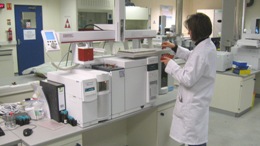Thirty-seven members of the European Parliament have expressed concern about what they describe as the ‘Filtergate scandal’; and they are seeking assurances from the Commission about compliance with the Tobacco Products Directive.
In a preamble to their question, the MEPs said that Articles 3, 4 and 5 of Directive 2014/40/EU concerning the manufacture, presentation and sale of tobacco and related products had specified maximum emission levels for tar, nicotine and carbon monoxide in tobacco products, the measurement methods to be used for determining those levels, and requirements concerning the reporting of ingredients and emissions.
‘More specifically, Article 3 stipulates that the emission levels from cigarettes placed on the market or manufactured in the member states may not be greater than 10 mg of tar, 1 mg of nicotine and 10 mg of carbon monoxide per cigarette.
‘Article 4 stipulates that tar, nicotine and carbon monoxide emissions from cigarettes must be verified by laboratories which are approved and monitored by the competent authorities of the member states.
‘Article 5 stipulates that member states must require manufacturers and importers of tobacco products to submit to their competent authorities information concerning ingredients and quantities thereof and the emission levels referred to in Article 3.
‘All these requirements had already been in force since the adoption of Directive 2001/37/EC.’
The MEPs asked whether, following the submission by the National Anti-Smoking Committee to the State Prosecutor in France of a complaint against the French subsidiaries of four cigarette manufacturers (British American Tobacco, Philip Morris, Japan Tobacco and Imperial Brand) citing “deliberate endangerment of persons unknown”, a complaint that was based on the allegation that the manufacturers in question placed on the market cigarettes whose filters had been manipulated, with the result that their actual emission levels for tar, nicotine, carbon monoxide were significantly higher than those officially verified, ‘can the Commission give assurances that all the provisions of Directive 2014/40/EU, and in particular those referred to above, are being enforced in all the member states and complied with by cigarette manufacturers?’
The Commission is due to reply in writing.
‘Filtergate’ question raised











